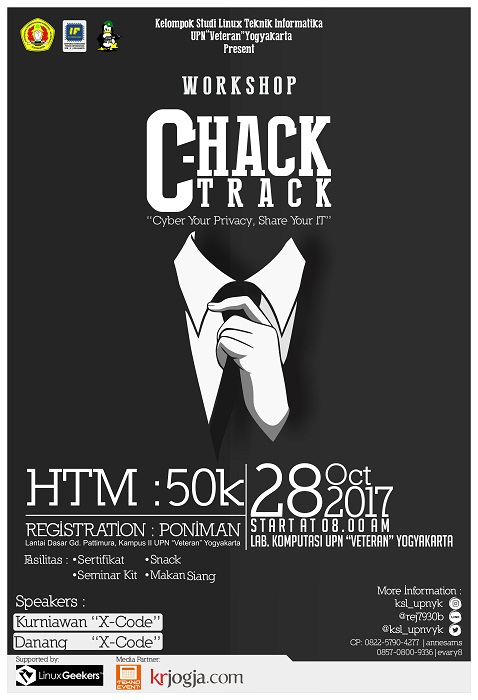SLEMAN (KRjogja.com) - In today's global era, the security of Internet-based information systems is a must to pay more attention, because the public and global Internet networks are basically unsafe.
When data is sent from one computer to another on the Internet, it passes through a number of other computers which means it will allow the user to take over one or more computers. Unless a computer is locked in a room with limited access and the computer is not connected out of the room, it will be safe.
However, the beauty of the internet is not as beautiful as its promised name can provide a variety of information available in any part of the world, because the various crimes that exist in real life was more commonly found in the internet world.
Today, the internet has become part of our daily lives as one of the means of communication in business as well as for the private. Yet, along with it, there are many holes weakness of the system on the internet that can be exploited by the cracker for bad purposes, such as mail bombs, randomization of home page, data theft, password or credit card number, and others. Therefore, network security is needed in this case to avoid being affected by the bad impact of the attack.
In order to introduce and socialize more deeply to the general public, especially the students on how to prevent and overcome the internet network attacks using backtrack, the Study Group of Linux National Development University "Veteran" Yogyakarta, held a national workshop themed "C-HackTrack" on Saturday , 28 October 2017 located at the Laboratory of Informatics Engineering Campus 2 National Development University "Veteran" Yogyakarta.
In the workshop "C-HackTrack" presented a national speaker of "X-Code".
"Our hope is that this workshop is implemented and can be useful for participants and their knowledge is not to be misused. The purpose of this workshop is to introduce the participants to C-HackTrack and its implementation in information technology, "said the committee chairman Ahmad Faisal (20).
The workshop was designed as a vehicle for professional interaction between computer science communities in Indonesia to exchange ideas, knowledge, experiences, and ideas to accelerate the development of research in the field of computer science. (*)
Jl. SWK 104 (Lingkar Utara), Condongcatur, Yogyakarta 55283 (Kampus Pusat)
Jl. Babarsari 2 Yogyakarta 55281(Kampus Unit II) | Telp. +62 274 486733



